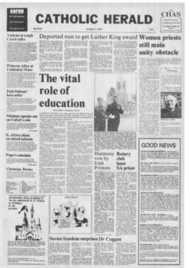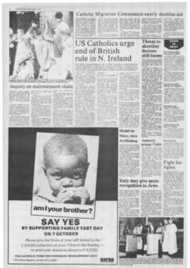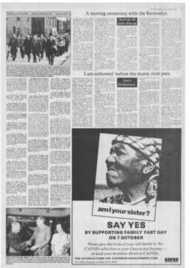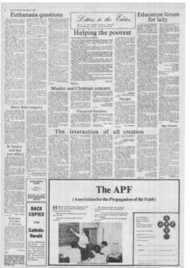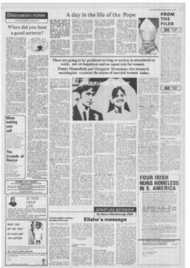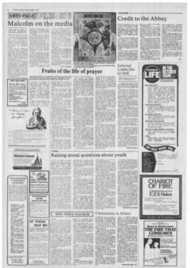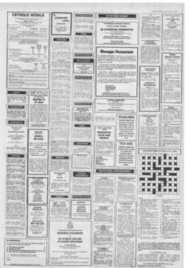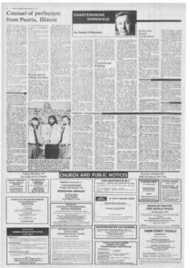Page 2, 7th October 1977
Page 2
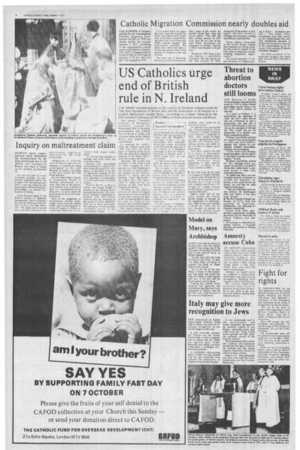
Report an error
Noticed an error on this page?If you've noticed an error in this article please click here to report it.
Tags
Share
Related articles
The Herald Says
'end Direct Rule' Call By Bishop Cahal Daly
British Troops Welcomed In Ulster Under Last Government
Autumn Conference
The Truce That Passed Northern Ireland By
Us Catholics urge
end of British
rule in N. Ireland
-From a
Special Correspondent
US Catholic Conference THE MOST rational solution to the conflict in Northern Ireland would be "the final liquidation of British rule and the unification of all Ireland in a modern democratic secular State," according to a report released by the (USCC) Office of International Justice and Peace.
The report, "Northern Ireland: A Religious Conflict?" accuses the Provisional IRA of blocking reconciliation and pushing for a civil war in Ulster, and criticises those in the United States who support the organisation.
In assessing the conflict, which has claimed more than 1,500 lives since the latest round of fighting flared up in 1969, the report gives a positive appraisal of the Peace Movement which began last year.
"Recently, the interest and admiration of the whole world has been engaged by what appeared as a new beginning in the .process of reconciliation, the initiative of the Women's March for Peace and the resulting Peace Movement," the report says. "The movement is supported by the leaders of the four main Churches in Ireland.
"Working in the opposite direction are those who regard themselves as friends to Ireland because they support the fight of the Provisional IRA to gain its ends by violence and because they contribute money for the purchase of weapons." The report continues: "The Provisional IRA conceives its role as primarily that of ending Partition and forcing union of Ulster with the Republic," although leaders of the Provisionals have repeatedly denied that charge. According to the Provisionals, their aim is the creation of a federation consisting of the four historic provinces of Ireland, each of which would have its own government.
In tracing the history of the strife, the report seeks to clarify the role religion has played. "The struggle is not over religious doctrine, but rather over the distribution of political power and its social and economic consequences.
"The fact that the contending factions are respectively from the majority Protestant and the minority Catholic community, and that their basic difference is one of religious and cultural identity, makes it a sectarian clash between Christians of different denominations," the report says.
"If the citizens of Northern Ireland were either all Protestant or all Catholic, there would be no sturggle. If all were Catholic, there would be no Northern Ireland."
An appendix lists conclusions and recommendations from "Violence in Ireland: A Report to the Churches," published in 1976. That report strongly criticised organisations such as the IRA and Protestant paramilitary groups, and called on the Churches to support peace movements.
The USCC report is the first of a series of information papers on international issues. "The papers do not attempt to make conclusive moral judgments or give pastoral guidance," according to the Justice and Peace Office.
• The first issue of the Irish news magazine Magill publishes an opinion poll showing that 63 per cent of thepeople of the Republic are in favour of Irish unity. Slightly more 65 per cent) thought the Catholic Church should change its attitude on integrated education.
Slightly under half (47 per cent) thought the Church should change its attitude on the legalisation of contraception, while 36 per cent thought it should not. There was an even division of opinion on whether the Church should change its attitude on divorce.
blog comments powered by Disqus


